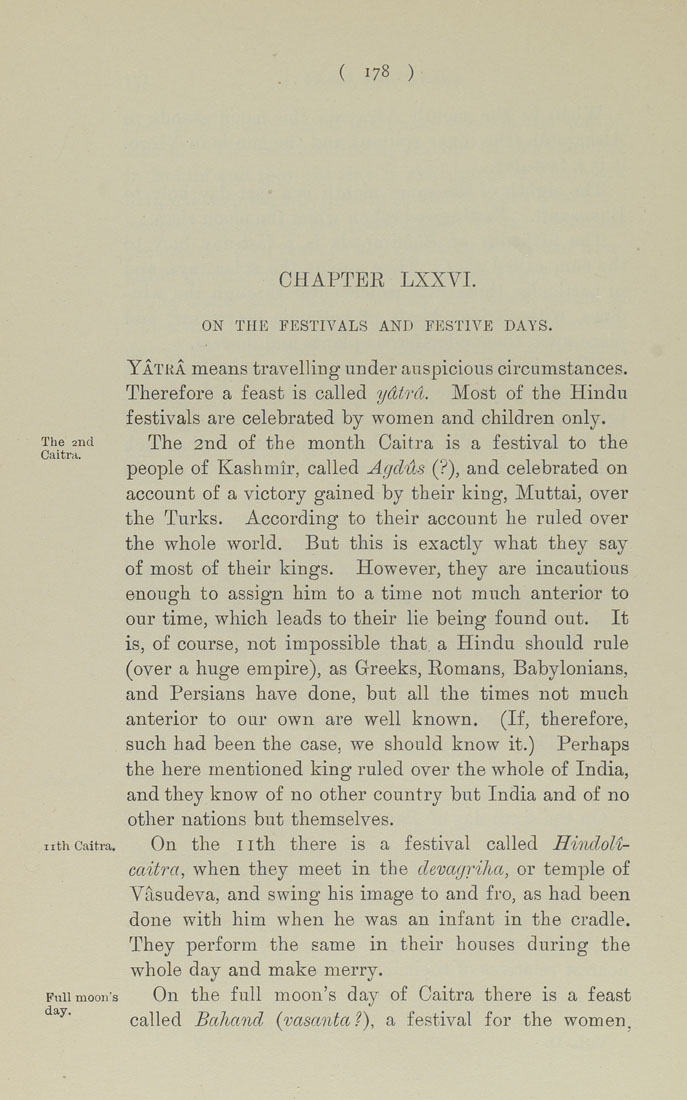( 178 )
CHAPTER LXXVI.
ON THE FESTIVALS AND FESTIVE DAYS.
Yatra means travelling under auspicious circumstances.
Therefore a feast is called ydtrd. Most of the Hindu
festivals are celebrated by women and children only.
The 2nd The 2nd of the month Caitra is a festival to the
Caitra. i /«-
people of Kashmir, called Agclus (^), and celebrated on
account of a victory gained by their king, Muttai, over
the Turks. According to their account he ruled over
the whole world. But this is exactly what they say
of most of their kings. However, they are incautious
enough to assign him to a time not much anterior to
our time, which leads to their lie being found out. It
is, of course, not impossible that a Hindu should rule
(over a huge empire), as Greeks, Romans, Babylonians,
and Persians have done, but all the times not much
anterior to our own are well known. (If, therefore,
such had been the case, we should know it.) Perhaps
the here mentioned king ruled over the whole of India,
and they know of no other country but India and of no
other nations but themselves.
nth Caitra. On the I ith there is a festival called Hindoli-
caitra, when they meet in the devctgrihct, or temple of
Vasudeva, and swing his image to and fro, as had been
done with him when he was an infant in the cradle.
They perform the same in their houses during the
whole day and make merry.
Full moons Oil the full moou's day of Caitra there is a feast
^^' called Bcthctnd (vasanta?), a festival for the women.
|








